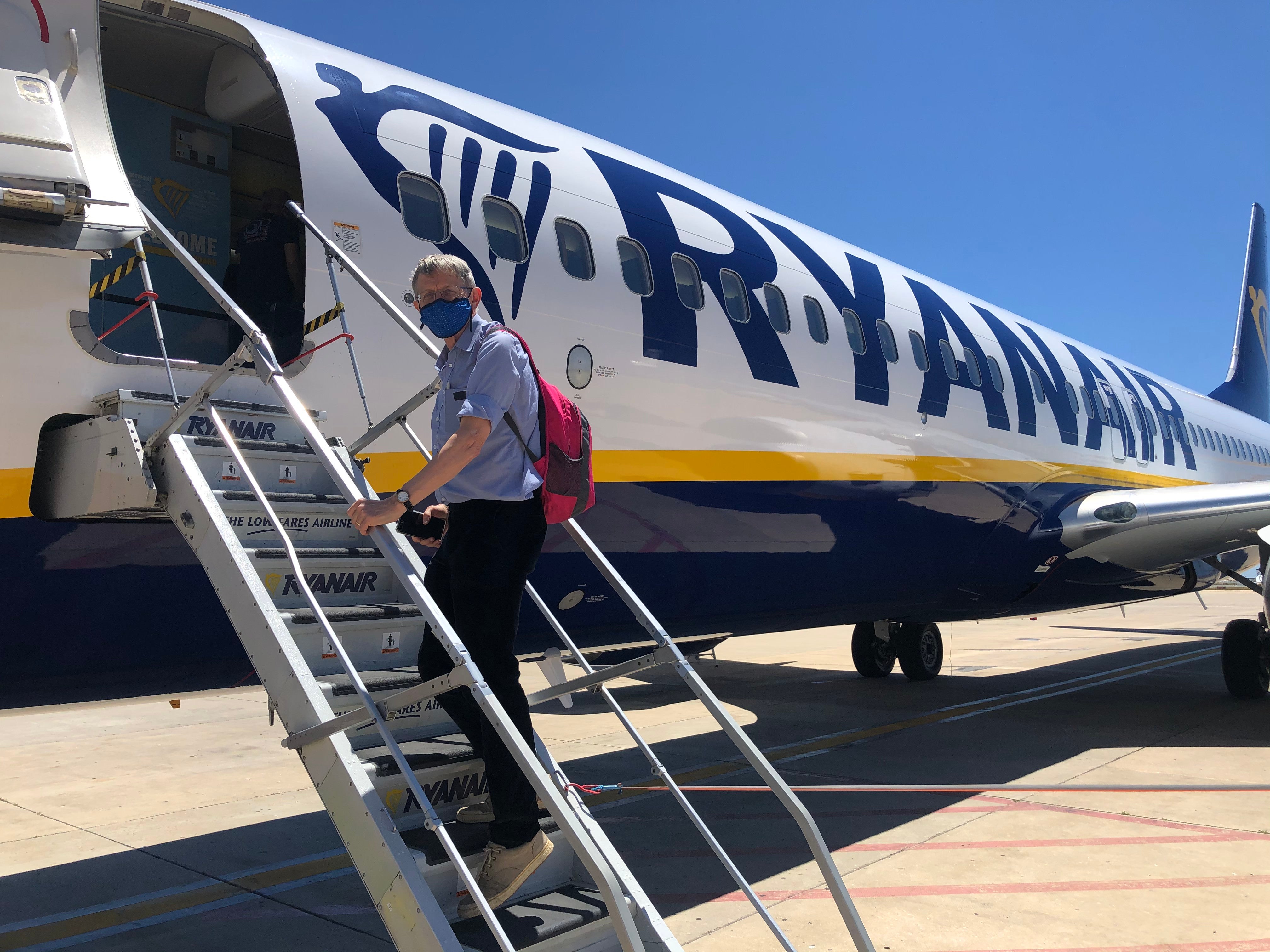Private jet experience for under £9 as Ryanair flies plane with 176 empty seats
Transport at levels of demand like this, with such complications, is clearly unsustainable

Your support helps us to tell the story
From reproductive rights to climate change to Big Tech, The Independent is on the ground when the story is developing. Whether it's investigating the financials of Elon Musk's pro-Trump PAC or producing our latest documentary, 'The A Word', which shines a light on the American women fighting for reproductive rights, we know how important it is to parse out the facts from the messaging.
At such a critical moment in US history, we need reporters on the ground. Your donation allows us to keep sending journalists to speak to both sides of the story.
The Independent is trusted by Americans across the entire political spectrum. And unlike many other quality news outlets, we choose not to lock Americans out of our reporting and analysis with paywalls. We believe quality journalism should be available to everyone, paid for by those who can afford it.
Your support makes all the difference.The missing 14th passenger may not have regretted “no-showing” for Ryanair flight 9143 from Faro to London Stansted. Not only was the sun shining relentlessly on the Portuguese Algarve, while the pilot has just warned of rain in Essex on arrival – their financial loss will have been less than €10.
I have just stepped off the early afternoon departure from the main holiday airport in the leading “green list” country – where only a dozen fellow passengers accompanied me. With 176 empty seats, the “load factor” was below 7 per cent, compared with Ryanair’s average of 93 per cent before the coronavirus pandemic.
Everyone had a window seat, as well as a middle and aisle. They could watch the dramatic journey across western European skies. The Boeing 737 paralleled the west coast of Portugal, crossed the mountains of northwest Spain and the Bay of Biscay, sliced the elegant curve of the Breton peninsula, passed the Channel Islands, Cherbourg and the cloud-dappled Isle of Wight and made landfall over Selsey Bill in Sussex.
Champagne and caviar canapés were not dispensed for the full private jet experience, but the senior member of cabin cabin crew – a young Catalan woman named Africa – served oven-ready lasagne and Thai green curry – to the privileged few on board.
The flight was put on hastily by Ryanair after Portugal was awarded quarantine-free status along with Iceland, Gibraltar and a range of destinations that are either off-limits to British holidaymakers or impractical.
Tracking the fare for the departure, it never appeared to go above €9.99 (£8.60) – the price I paid, and substantially less than the cost of a connecting train to London from the Essex airport.
The basic fare revenue of €140 (£120) was increased as one passenger had opted for priority boarding and others had checked baggage.
To fly the 189-seat jet 1,000 miles from Portugal’s Atlantic coast to northern Essex will have cost around £8,000 in direct operating costs. Ryanair, Europe’s biggest budget airline, will have incurred airport charges, fuel costs, air-traffic control fees and depreciation.
Outbound, the plane carried 151 passengers, a more respectable 80 per cent load factor. As holidaymakers flock to the Algarve, the airline should soon start filling its planes in both directions. But in order to start recouping the £702m in annual losses it has just announced, Ryanair will be hoping that the current constraints on holidays abroad will be eased.
Portugal insists on all arrivals from the UK aged two and over taking a PCR test within 72 hours of departure to Faro, Lisbon, Porto or the Atlantic islands.
Even though international leisure travel is no longer illegal from the UK, a prodigious amount of red-tape and expensive testing is required by British travellers returning home – or foreign tourists coming to Britain.
The passenger must arrange and pay for a Covid test in Portugal in the three days before departure to the UK.
They must then pre-book a PCR test for coronavirus to be conducted within two days of arrival in Britain, at a minimum cost of around £60.
Only then can they complete the Passenger Locator Form that is required on arrival.
After touchdown, five minutes ahead of schedule, the journey became even more surreal. As the government has repeatedly reminded travellers, they can expect long delays at passport control because the eGates cannot be used.
A line of half-a-dozen UK Border Force staff conducted what appeared to be passport checks – but these turned out to be only controls to ensure arrivals had their Passenger Location Form. Immediately afterwards, the traveller had to go through the eGates as normal.
The procedure took a couple of minutes at most, leaving plenty of time to reach the Stansted Express: a 12-coach train that could almost provide a carriage for every passenger on the flight from Faro.
Transport at levels of demand like this, with such complications, is clearly unsustainable. Either the rules change – or the travel industry will become a no-show.
Join our commenting forum
Join thought-provoking conversations, follow other Independent readers and see their replies
Comments